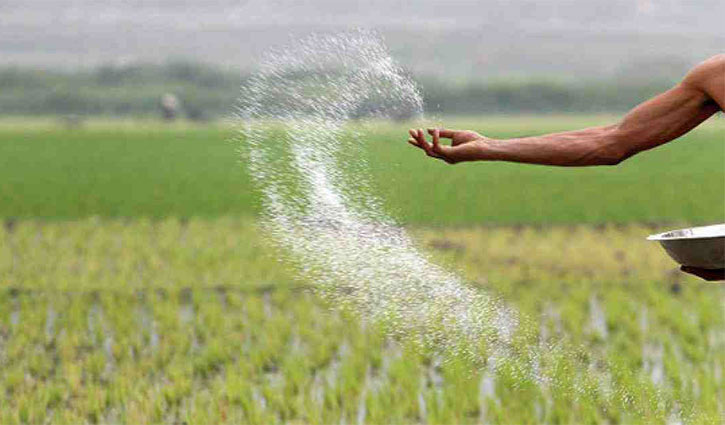No hike in fertiliser price for now
Asif Showkat Kallol || BusinessInsider

Photo: Representational
In a move not to inconvenience the farmers, the government has decided not to increase prices of chemical fertilisers until the national elections are held, officials said.
Instead, the government plans to increase next fiscal year’s fertiliser incentives (subsidies) to a record of more than Tk 15,000 crore, up 58 percent, amid a sharp increase in global prices of the chemical manures, sources said.
In fiscal 2021-22, the government had allocated fertiliser subsidies worth Tk 9,500 crore but the actual subsidy came to around Tk 13,332 crore at the end of April.
Sources said the retreat in government decision followed primarily a couple of grounds---avoiding political agitation and not to create any instability regarding employment in the farm sector before the election.
The decision was made recently at a meeting by the Prime Minister’s Office (PMO) after having recommendations from the macroeconomic wing of the finance division.
“We have recommended not increase the fertiliser prices in response to the international market because a huge number of rural workers are employed here,” said an official of the macroeconomic wing, requesting anonymity.
The government does not want any kind of unrest before the national election though the franchise is nearly 28 months away, he said.
"Power and gas prices are automatically adjusted by the Bangladesh Engery Regulatory Commission (BERC) but we have to pay a huge subsidiies claimed by the agriculture ministry," the official said.
A total of 38.30 percent of workers are employed in the country’s agriculture sector, whose contribution to GDP is around 13 percent, BBS data of 2020 shows.
In 2012, a total of 45.76 percent of people were employed in the farm sector.
During the last five months, Agriculture Minister and Awami League presidium member Md Abdur Razzaque kept on saying that the farmer-friendly Prime Minister Sheikh Hasina will not increase the prices of fertiliser to allow uninterrupted development of the country’s farm sector.
According to the World Bank’s Commodity Markets Outlook (April), fertiliser prices have risen nearly 30% since the start of 2022, following last year’s 80% surge. Soaring prices are driven by a confluence of factors, including surging input costs, supply disruptions caused by sanctions (Belarus and Russia), and export restrictions (China). Rising natural gas prices, especially in Europe, led to widespread production cutbacks in ammonia—an important input for nitrogen-based fertilizers. Rising natural gas prices, especially in Europe, led to widespread production cutbacks in ammonia—an important input for nitrogen-based fertilizers.
In the last fiscal year, the import cost per kg of urea fertiliser was Tk 32, TSP Tk 33, MOP Tk 23, DAP Tk 37, which has increased to Tk 96, Tk 70, Tk 54 and Tk 93 in the current financial year, respectively. However, per kg urea is being distributed among the farmers at Tk 16, TSP at Tk 22, MOP at Tk 15 and DAP at Tk 16, respectively.
In fiscal 2021-22, demand for chemical fertiliser aggregated 57.50 lakh tonnes – 26 lakh tonnes of urea, 7.5 lakh tonnes of TSP, 7.5 lakh tonnes of MoP and 16.5 lakh tonnes of DAP.
In April, with input costs rising sharply, Indian fertiliser companies passed on a portion of the same to the farmers. The price of DAP increased by 12.5 percent and other varieties of fertiliser increased by 8.5 percent, sources claimed.
“Any decision of price hike of fertiliser or energy price will create a negative impact on the market” former caretaker government’s finance adviser Dr AB Miza Azizul Islam told Business Insider Bangladesh.
The government may have a risk of seeing fertiliser being smuggled out to India if prices are not raised in line with the international market, he added.
The Centre for Policy Dialogue has said that the subsidy could be restructured in view of the country’s LDC graduation.
The think tank also said the government has ensured priority payment of higher subsidy for fertiliser with strong market monitoring to ensure farmers’ access to inputs at subsidised price.
























